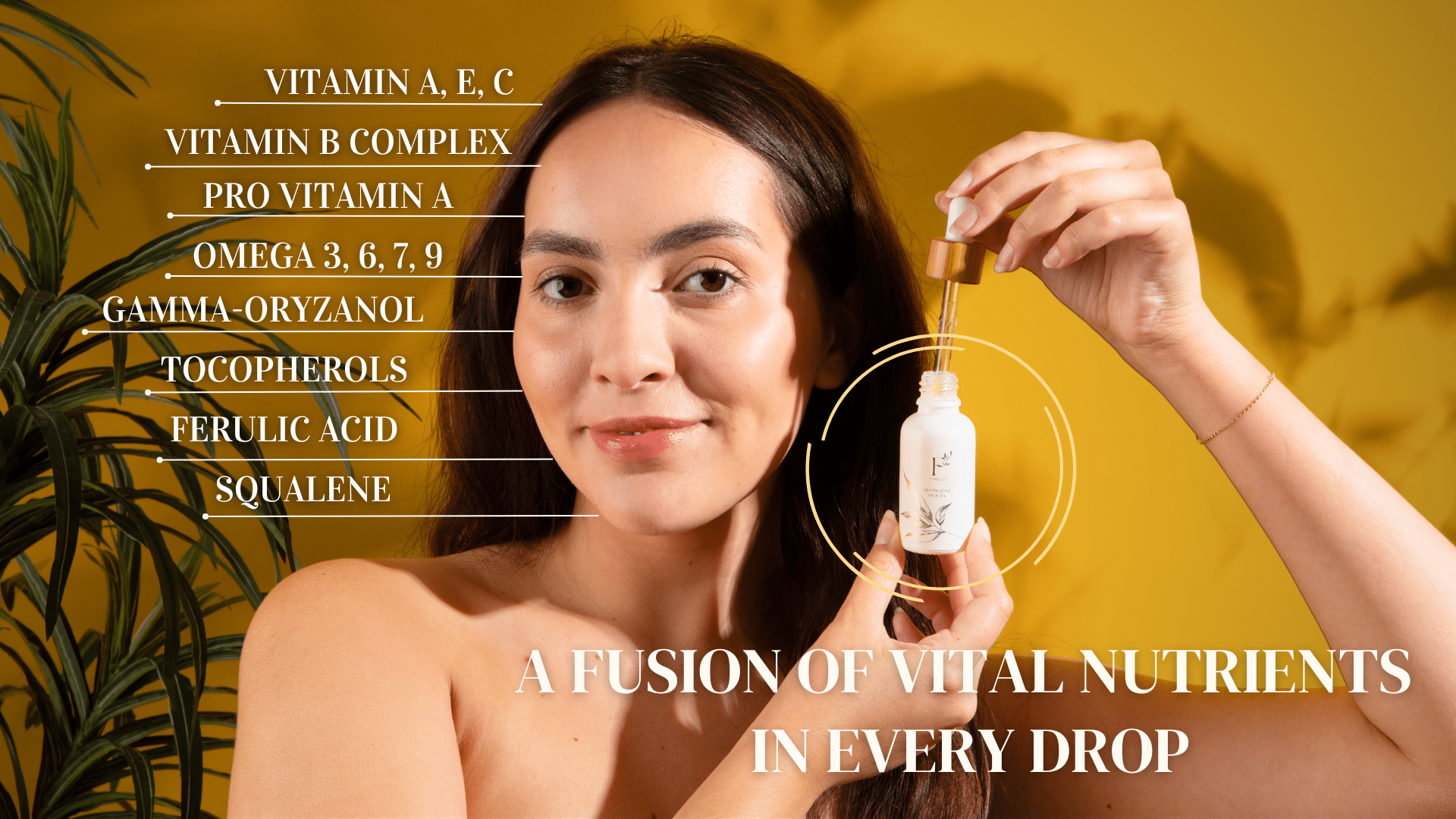Choosing between oils and creams can be confusing when it comes to skincare. Both play a role in achieving healthy, radiant skin, but they work differently and offer unique benefits. Let’s explore the characteristics of each, understand when to use them, and why face oils might be a game-changer for empowering your skin’s natural abilities.
The Basics: What Are Creams and Oils?
Creams
These are water-based emulsions that usually contain oils, preservatives, water, and emulsifiers to keep the mixture stable. Creams have a thicker consistency and are intended to create a protective barrier on the skin. Their main goal is to hydrate the surface of the skin.
Oils
Skincare oils are pure or blended mixtures, typically plant-based, that mimic the natural lipids in our skin. They offer a concentrated dose of nutrients like fatty acids, vitamins, and antioxidants. Their main function is to provide nourishment, seal in moisture, and strengthen the skin barrier.
How Do Creams Work?
Creams and lotions are popular choices for many due to their convenience and immediate hydrating effect. They are made up of two main components: water and oil. The water content hydrates the outer layer of the skin, while the oil helps form a protective layer to prevent moisture loss.
However, most creams primarily create a topical layer, hydrating the surface but not penetrating the deeper layers of the skin. This is due to the emulsion structure, which prevents creams from penetrating deeply into the skin barrier. While they can help reduce transepidermal water loss (TEWL), they might not provide the deep nourishment or long-term benefits needed to repair or rejuvenate the skin.
How Do Oils Work?
In contrast to creams, oils have a molecular structure that allows them to penetrate the skin more effectively. This ability to reach deeper layers is what sets oils apart. Plant-based ones are composed of small molecules that can seep through the skin’s surface and deliver essential fatty acids, vitamins, and antioxidants directly to the cells.
Face oils not only moisturize but also play a crucial role in empowering the skin’s natural abilities:
Hydration and Nourishment
These help in sealing the moisture within the skin and delivering essential nutrients like Omega fatty acids. For instance, oils rich in Omega-3, 6, and 9 enhance hydration, restore the moisture barrier, and prevent moisture loss from within.
Strengthening the Skin Barrier
Oils work to strengthen the skin’s lipid barrier, protecting it against environmental aggressors like pollutants and UV rays. This fortified barrier also prevents water loss, keeping the skin plump and hydrated for longer periods.
Promoting Collagen and Elasticity
Many natural oils, such as Jojoba and Rice bran, contain antioxidants, vitamins, and active compounds like gamma oryzanol. These components stimulate collagen production, support skin elasticity, and fade fine lines or dark spots.
Balancing Sebum Production
Contrary to popular belief, using oils can help regulate oily skin. Popular ones like Jojoba mimic the skin’s natural sebum and signal the body to produce less oil, thereby controlling shine and reducing clogged pores.
Comparing Oils and Creams
Penetration vs. Topical Hydration
Creams: Form a protective layer that temporarily hydrates the skin’s outer layer. They act as a shield but are unable to penetrate the deeper layers due to their larger molecular structure. This makes them more suitable for providing immediate surface hydration.
Oils: Penetrate deeper into the skin, providing nutrients and locking in moisture from within. The deeper penetration helps repair damage, promote elasticity, and strengthen the skin.
Nourishment and Skin Health
Creams: While many creams contain beneficial ingredients, their effectiveness is often limited due to their inability to penetrate the deeper skin layers. As a result, they may not reach the cells that need these nutrients the most.
Oils: Provide a direct source of nourishment. Essential fatty acids and vitamins penetrate the skin and feed it from the inside out, supporting natural cell turnover and rejuvenation.
Why Oils Empower the Skin’s Natural Abilities
One of the key advantages of face oils is their ability to empower the skin to function optimally. By providing essential nutrients directly to the skin cells, oils help support natural cell turnover, improve barrier function, and protect against oxidative stress.
This empowerment goes beyond simple hydration. By nurturing the skin from within, oils help maintain long-term skin health, combat premature aging, and keep the skin resilient against environmental damage.
Conclusion
Both have their place in a skincare routine and understanding when and why to use each can help you achieve the best results. By incorporating high-quality face oils into your routine, you’re not just moisturizing your skin—you’re empowering it to thrive naturally. Try our Revitalizing Face Oil now!




